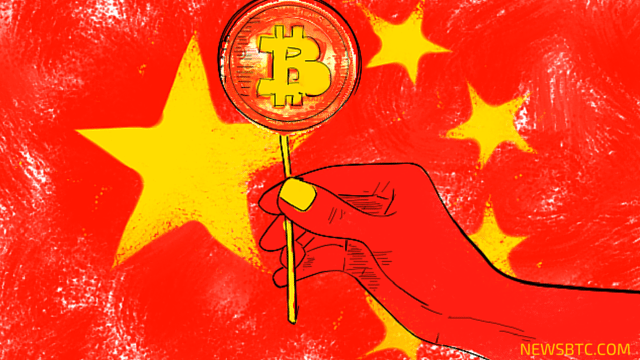Despite the pressure regulators are putting on the domestic cryptocurrency market, Chinese traders are refusing to give it up. From the centralized exchanges, they’re moving to peer-to-peer platforms like LocalBitcoins and messenger applications to continue trading.
The cryptocurrency shakeup started with a ban on initial coin offerings this September and continued with the country’s large exchanges announcing plans to cease operation by the end of September. However, this has prompted an exodus to platforms that are more difficult to police, and true peer-to-peer exchange. In addition, there seems to be little let up in the ICO space either. Analysts have said that many overseas ICOs are still being promoted to Chinese nationals.
The crackdown has undoubtedly affected the market. Many less-experienced investors have been dissuaded from trading. Those continuing cite the uphill struggle regulators will face trying to quell the industry. Due to the very nature of crypto, it can be difficult to track participants. One trader, going by the assumed name of “Victor” in light of current sensitivities said the following:
They can’t set rules to stop me from investing in what I want to invest in. They say you are protecting me, but as long as I think this is good, they have no way to intervene… I can do over-the-counter trades or I’ll go offshore…My wallet is my wallet. I’ve never registered my identification card.
Meanwhile, sites like LocalBitcoins are doing well from the climate of uncertainty generated by Chinese regulatory flexing. Their trading volumes in the country more than doubled in the week starting September 16 according to data analysts at Coindance. Trading on Paxful, another small marketplace, also jumped in terms of volume to 1.7 million just last week. Michael Foster, co-founder of peer-to-peer Ethereum exchange localethereum.com, said that the Chinese market accounted for a fifth of its signups since Tuesday.
In another telling move about the current cryptocurrency climate over in China, reports are emerging of traffic increasing on messenger application Telegram. For communication, traders are favoring the encrypted service over the heavily surveilled WeChat to skirt around regulatory enforcement.
Marshall Swatt, the founder of bitcoin exchange, Coinsetter, commented:
The fact that bitcoin is still being traded is an indication that China isn’t looking to eliminate them, but reposition things in a way to have better control over them.
Some involved in the space even say that ICOs are still being marketed in China. The news comes despite the September 4 ruling stating that Chinese citizens were not allowed to invest in companies using the innovative new fundraising strategy. Zeng Danhua, the co-author of a bitcoin investment guide highlights the futility of fighting such a trend.
The trend of digital currency transactions moving offshore is inevitable.
Unfortunately, it seems likely that such flouting of the law will attract yet more interest from regulators in the space. The realization of how difficult effective policing of cryptocurrency will be long-term, and how easy it’s proving for market participants to operate beneath legislation could prompt a knee-jerk reaction from the nation’s executive. It’s hard to imagine the undermining of the authority of Beijing being tolerated for long.























